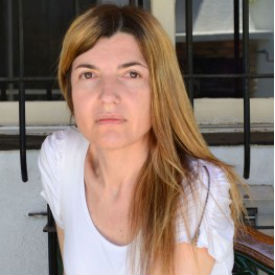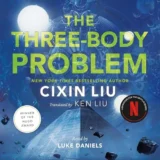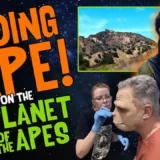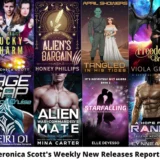I’m treading sensitive territory here, so forgive me if I seem to be a bit cautious.
Fireside Fiction recently published a report, reported on by the Verge, with a click-bait title:
Science fiction publishing has a major race problem, new report shows.
The report itself is presented thusly: Antiblack Racism in Speculative Fiction.
The report states that its methodology is flawed (explains why) and includes a statement about the costs associated with producing the report and then makes a plea for Patreon support.
I have problems with this. Presenting a preliminary, if flawed report is one thing. Doing so in a provocative manner is a mistake, as it invites all manner of criticism that can easily distract from the primary issue (which is a need for better representation of black authors in the field).
Including an appeal for donations corrupts it further, making it seem like nothing more than a crass attempt at fund raising by pushing hot buttons.
This is, I believe, a case of flawed presentation. The question being asked is an important one. The data gathered is valuable, even if it is flawed.
By way of counter-example – Neil Clarke of Clarke’s World Magazine has, annually, gathered information on gender-bias in the SF publishing field (just one example), pointed out the inherent flaws in methodology and offers exposition on the findings. I do not see click-bait titles, nor associated fund-raising appeals.
Neil does good work and is respected in the field because of his measured and professional approach to the issues. I do not see any way in which a charge of “systematic racism” could be applied to either the individual or his publication. I strongly suspect that the charge can’t be applied to many other editors and magazines in the field either.
Before I continue though, some caveats. This is not a hit piece, attempting to erase the findings of this report by pointing out flaws that have nothing to do with the issue(s). The problem I have is with the poor presentation and the over-reaching conclusions, not the idea that black SF authors are under-represented in the field. Anyone can see that this is the case. Anyone engaged with this field for the past several years knows that it has been a regular topic of discussion.
It is not an easy problem to solve, if my own poor attempts at outreach are any measure to go by:
I originally thought that Amazing could attract a widely diverse contributor base and audience organically – open the doors and let everyone in. (Staff page)* This worked well, I think, in general; decent international participation, a rough parity between male and female, age range, sexual orientation. A bit weak on the POC side, but enough of a base to grow from.
I was concerned about a lack of black participants. I reached out, joining the Black Science Fiction Association and making appeals for participation and consulting with Steven Barnes; my Facebook conversations with Steven led to the regular appearance of K. Ceres Wright, a newly published author, at that time. My hope was that the presence of Ceres would encourage other black contributors. I know that it brought in more black readers/members.
The outreach also brought far more of the black science fiction world to my attention, resources that regularly provide content for news coverage and various features.
Most recently I had the opportunity to ask Nalo Hopkinson to pass along my interest in attracting more black contributors.
The preceding should serve as nothing more than evidence of the fact that here at Amazing, positive steps have regularly been taken to address this issue (as there have been at many other publications in the industry). (It should also be taken as an additional request for more participation by blacks, women and other under-represented groups within the field. I’d be very happy to hook up with someone familiar with the black SF community who would be willing to serve as an outreach coordinator.) I do not think that those actions come anywhere close to a charge of systemic racism. If I’m wrong on that score, let me know.
Have I done the absolutely best job at outreach? No. I could have been more consistent in my attempts. Do I have theories as to why things have so far worked out the way they have? Yes. I don’t offer much in the way of compensation for contributors: a place you can say your say, association with a well-recognized name in the history of the field, advertising space, a chance to reach a dedicated audience of some 30 to 35 thousand readers, but no pay. I strongly suspect that many new writers – especially among minority groups, blacks and women in particular – the no pay thing is more of a barrier than it is for older members of the field: not necessarily because they aren’t willing or interested, but because they’re expending their efforts on breaking through and breaking in. Further – Amazing Stories has more resonance with an older generation which, as we know, tends to be very male and very white. And of course we print very little fiction, so there is that too.
But to get back to the report, the associated editorial and the interview with N. K. Jemisin (who is probably the leading lady of black SF authors at this time and doing a marvelous job of blazing a trail and demonstrating by example that a black author, writing from a black perspective and presenting black characters can become a vibrant and important part of “writing for the market”): I find it interesting that most of the interview with Jemisin does not seem to support the conclusion of the Fireside report: her explanation is that most black authors, failing to find ready acceptance in the traditional markets, went their own way, and that this has become fairly institutionalized over the years. In other words, at least two elements are at work here: a traditional market that, at the very least did not present itself as welcoming, and the development of other, more rewarding paths for black authors, has created a situation in which black authors simply do not regularly submit their work to the traditional market.
The traditional market’s unwelcoming nature can, and probably is due to many factors. One of which is certainly a perception of the marketplace for short SF fiction. Magazines must sell in order to survive. If their audience is perceived as being white (and male), it’s no surprise to find that most of the stories feature white characters and white experience. AARP’s magazine doesn’t publish articles about high school sports injuries. Maker magazine doesn’t publish articles about the benefits of mass production.
Fireside’s report is a report on the symptom, and I think it calls out the wrong disease as the culprit. Systemic Racism implies deliberate and overt action. Over the past several years we’ve seen anything but that. At worst, a handful of bad actors complaining that SF ain’t what it used to be. A handful of editors/publications not going the extra mile. A vocal component actively engaging in addressing the issue in a variety of ways they hope are positive – looking for ways to expand the market to include everyone with an interest in SF.
What we don’t need are apparent self-aggrandizing reports that present the concerns with click-bait headlines. We’re all (well, many of us) trying to fix this problem, not make money off of it.
The timing of this report could not be more interesting. Next week, we’ll learn the results of the 2016 Hugo Awards. At the top of the heap you’ll find the novels and, among them a novel titled The Fifth Season by one N. K. Jemisin. It’s rightfully considered to be one of, if not the, front runner for the award.
If it wins, (and I hope it does) it will send a very strong message to traditional publishing that the black audience for speculative fiction is also their market. More importantly, it will lay to rest the contention that a white audience will not read black authored, black charactered and black experience-based works. And it will be up to the rest of us to prove that the time of systemic racism in the field (if it ever existed) is over. Science Fiction and Fantasy are speculative in nature. It’s readers want new experiences and to hear from new voices, particularly those with which they are completely unfamiliar. I have no doubt that the audience will reward publishers by being accepting of this (hopefully) new direction.
We’ve suffered from overt racism in the past. We’re now in an era of unconscious bias and institutionalized racism. The point, I think, is that we’re now increasingly conscious of it, which gives us the opportunity to work on it. Rather than pointing an accusatory finger at what was, let’s do the science fiction thing of pointing our finger at where we want to go and let’s get there.
*Amazing’s contributors are 1/3 female. We don’t see this as parity. We see it as a strong foundation to build on. We’d like that construction to include more black voices.
Steve Davidson is the publisher of Amazing Stories.
Steve has been a passionate fan of science fiction since the mid-60s, before he even knew what it was called.










As an older white male reader (and writer), I have to say that I’ve always read whatever was out there in the way of SF/F, especially People of Colour like the late Octavia Butler and Nalo Hopkinson, and female writers. I hope I’m not atypical; reading points of view that are different from your own is one way of widening your worldview. Once you let go of male privilege, white privilege and so on, one can learn a lot from (as Steve Barnes calls it) “Other” writing. I’m proud to be a part of Amazing’s welcoming stance!